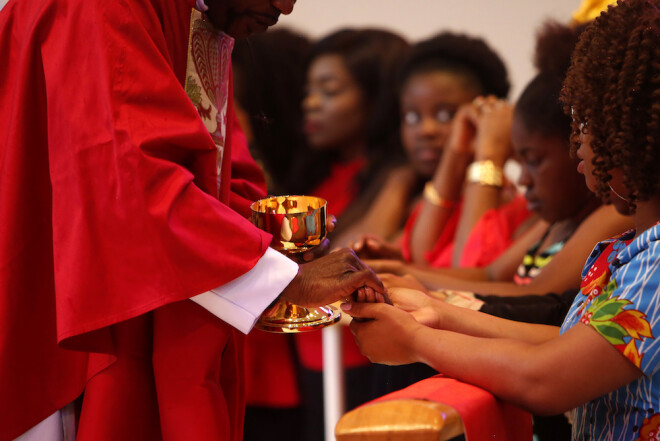Real Presence - But How and Whose?

Real presence- but how and whose?
“This is my body…’ So Jesus said at the last supper, and so we must take seriously how it is really so. This has been at the center of the Church’s debate about the Eucharist, since the Middle Ages. Sometimes a worked up philosophical theory was offered (with transubstantiation in Aquinas’ theology, for example). Sometimes it seemed enough to assert it and leave the ‘how’ an open question (so the famous poem by Queen Elizabeth I ‘Christ was the word that spake it…’) Sometimes the mode is the Spirit and the location is the soul of the believer (as with Calvin and Reformed traditions). But the great tradition one way or another sought to affirm a ‘real presence’ of Christ.
We can extend this not only to the bread and wine, but to the other sacraments, and to the Scriptures too. Augustine referred to the sacraments as the ‘visible Word,’ and recently theologian Hans Boersma of Nashotah has written a book called ‘Scripture as Real Presence.’ They make sense of one another, and this helps to hold the two halves of our Eucharistic service together.
Furthermore they both offer Christ’s ‘real presence.’ But how do we mean this? First of all, it is personal presence. Jesus is here, though mysteriously, in his risen and ascended reality. “Personally’ means He has His agency, His freedom, His relation to us. We see this in the Resurrection story, where he addresses the disciples, sends them, etc. Real presence, in other words, is not some spiritual power we could somehow manipulate or count as ours. On the other hand, and also as shown in the resurrection stories, this real presence is not disembodied, or in contrast to the physical. The same Word who spoke the world also speaks the Eucharistic presence into being. He engages His created order here too, but as its Lord. Sacraments are not magic, then, nor are they merely disembodied ideas.
The Church is the Lord’s dwelling place, and how he indwells it, really present to it, is seen most intensely in the sacraments.
Pick three Eucharistic hymns, sing them, and relate them to this reflection.


